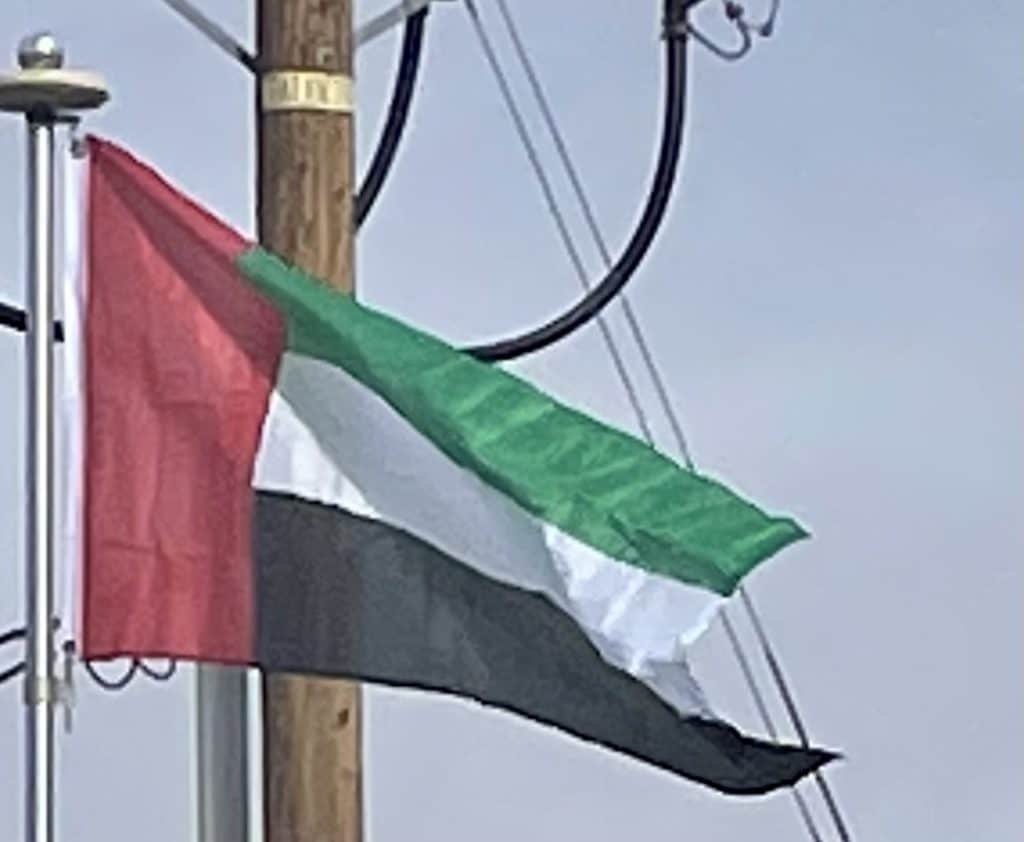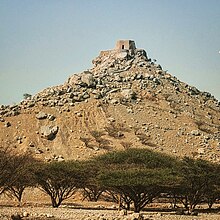Under the 1892 treaty, the trucial sheikhs agreed not to dispose of any territory except to the British and not to enter into relationships with any foreign government other than the British without their consent. In return, the British promised to protect the Trucial Coast from all aggression by sea and to help in case of land attack. The Exclusive Agreement was signed by the Rulers of Abu Dhabi, Dubai, Sharjah, Ajman, Ras Al Khaimah and Umm Al Quwain between 6 and 8 March 1892. It was subsequently ratified by the Governor-General of India and the British Government in London. British maritime policing meant that pearling fleets could operate in relative security. However, the British prohibition of the slave trade meant an important source of income was lost to some sheikhs and merchants.
In 1869, the Qubaisat tribe settled at Khawr al Udayd and tried to enlist the support of the Ottomans, whose flag was occasionally seen flying there. Khawr al Udayd was claimed by Abu Dhabi at that time, a claim supported by the British. In 1906, the British Political Resident, Percy Cox, confirmed in writing to the ruler of Abu Dhabi, Zayed bin Khalifa Al Nahyan (‘Zayed the Great’) that Khawr al Udayd belonged to his sheikhdom.
British era and discovery of oil:
During the 19th and early 20th centuries, the pearling industry thrived, providing both income and employment to the people of the Persian Gulf. The First World War had a severe impact on the industry, but it was the economic depression of the late 1920s and early 1930s, coupled with the invention of the cultured pearl, that wiped out the trade. The remnants of the trade eventually faded away shortly after the Second World War, when the newly independent Government of India imposed heavy taxation on pearls imported from the Arab states of the Persian Gulf. The decline of pearling resulted in extreme economic hardship in the Trucial States.
In 1922, the British government secured undertakings from the rulers of the Trucial States not to sign concessions with foreign companies without their consent. Aware of the potential for the development of natural resources such as oil, following finds in Persia (from 1908) and Mesopotamia (from 1927), a British-led oil company, the Iraq Petroleum Company (IPC), showed an interest in the region. The Anglo-Persian Oil Company (APOC, later to become British Petroleum, or BP) had a 23.75% share in IPC. From 1935, onshore concessions to explore for oil were granted by local rulers, with APOC signing the first one on behalf of Petroleum Concessions Ltd (PCL), an associate company of IPC. APOC was prevented from developing the region alone because of the restrictions of the Red Line Agreement, which required it to operate through IPC. A number of options between PCL and the trucial rulers were signed, providing useful revenue for communities experiencing poverty following the collapse of the pearl trade. However, the wealth of oil which the rulers could see from the revenues accruing to surrounding countries such as Iran, Bahrain, Kuwait, Qatar and Saudi Arabia remained elusive. The first bore holes in Abu Dhabi were drilled by IPC’s operating company, Petroleum Development (Trucial Coast) Ltd (PDTC) at Ras Sadr in 1950, with a 13,000-foot-deep (4,000-metre) bore hole taking a year to drill and turning out dry, at the tremendous cost at the time of £1 million.

